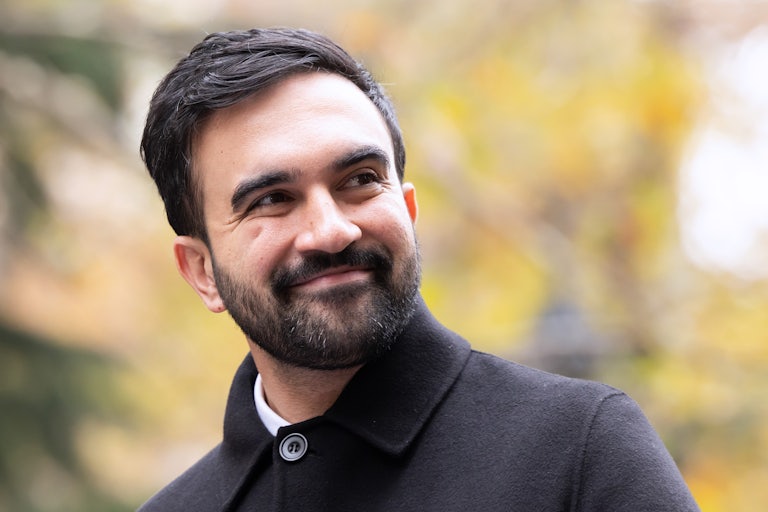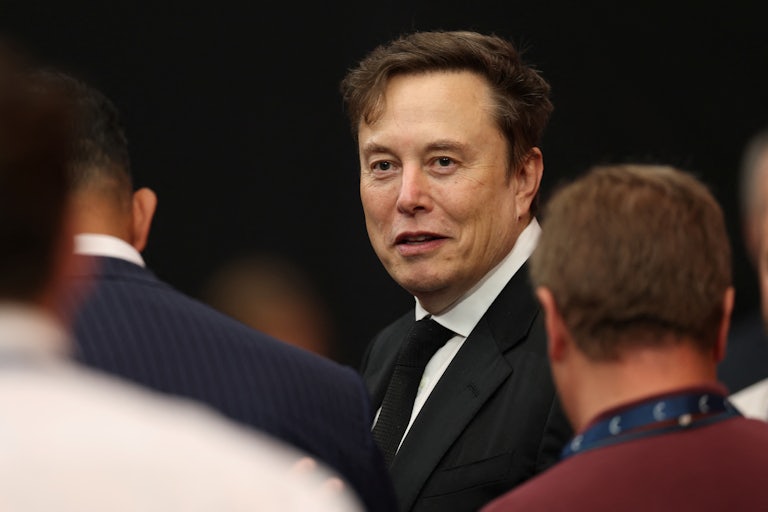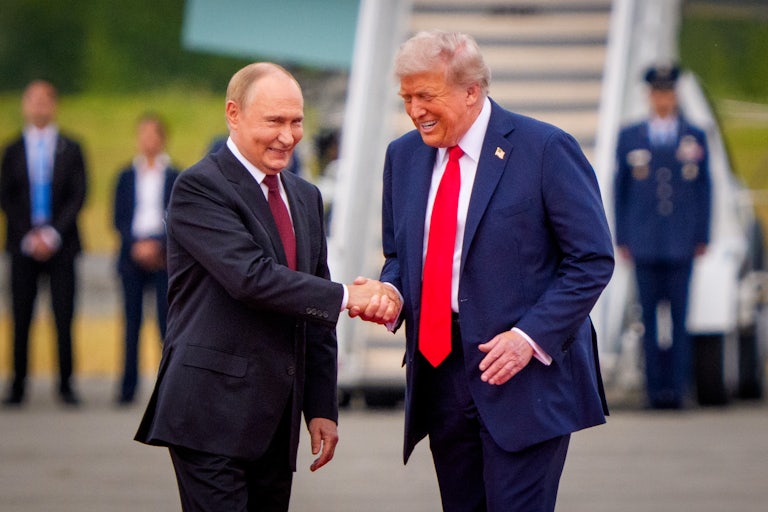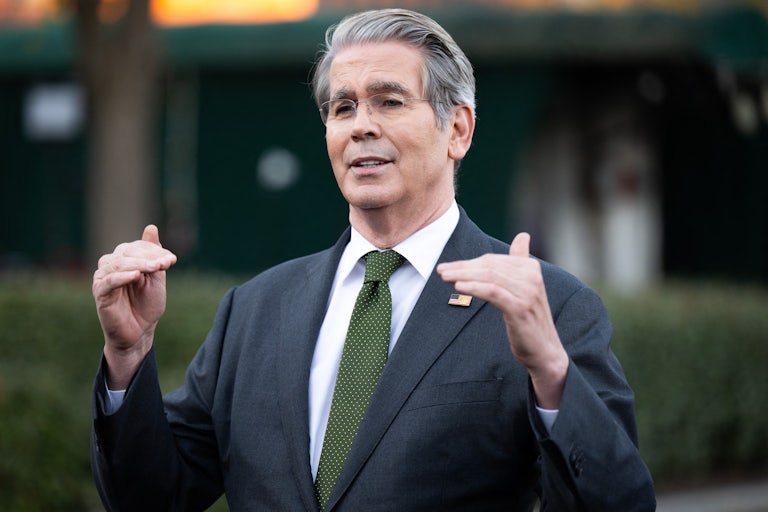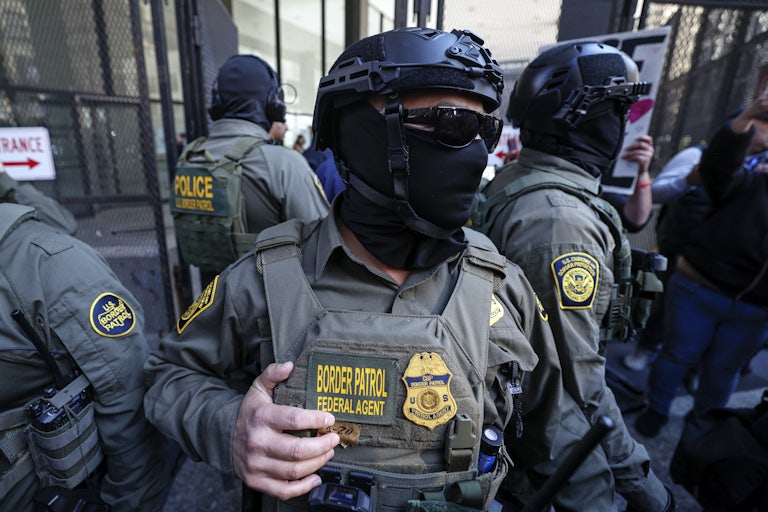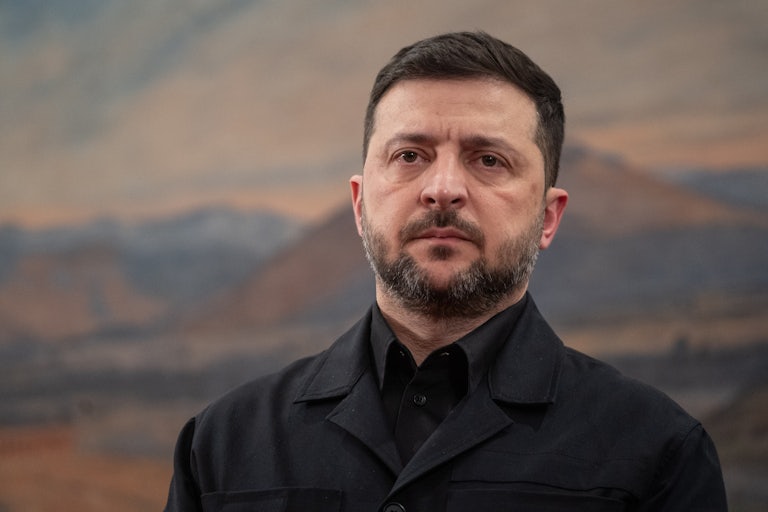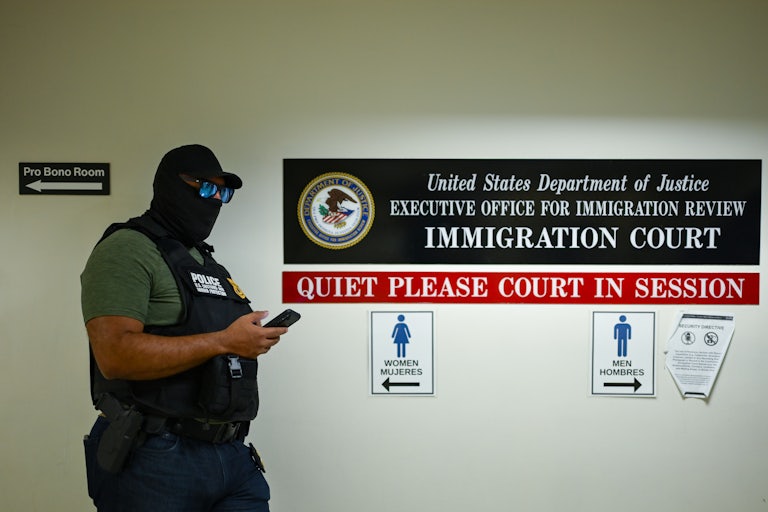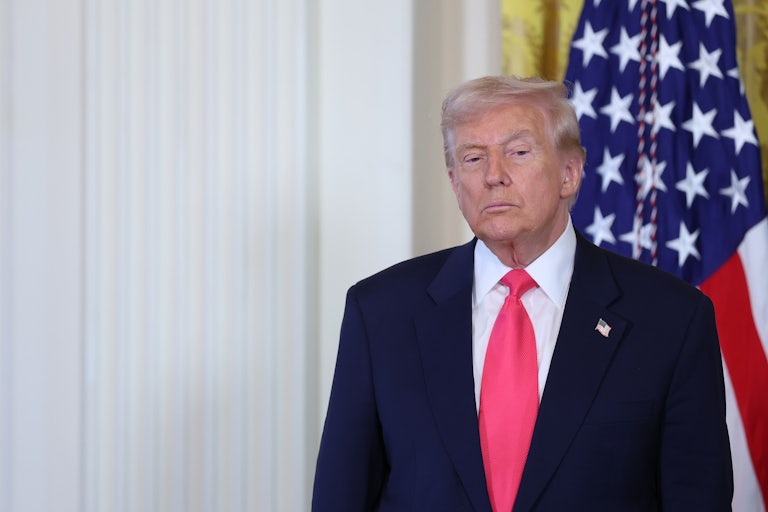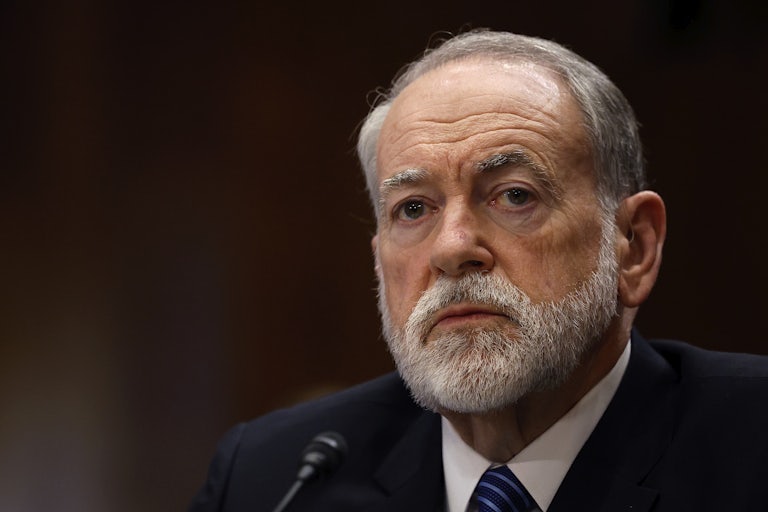New ICE Data Exposes Trump Is Lying About Deportations
Donald Trump claimed he was targeting criminals.
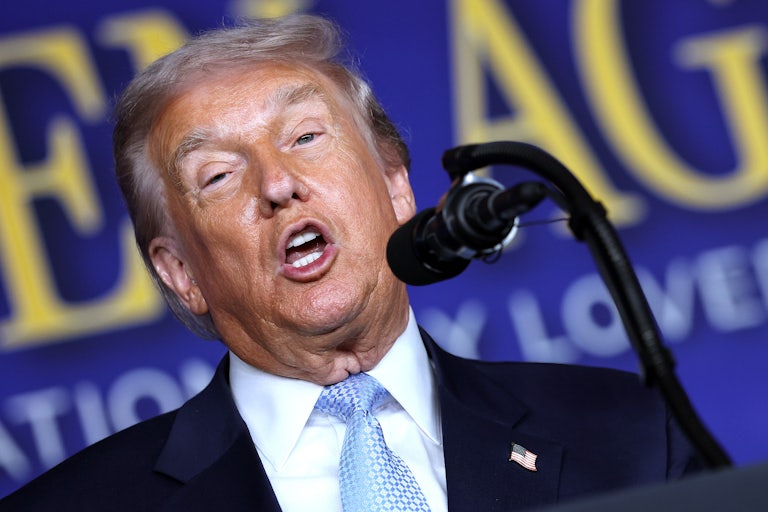
For the first time since the beginning of the government shutdown in October, Immigration and Customs Enforcement has published information about the thousands of immigrants detained in facilities across the country—and the new data is a doozy.
President Donald Trump previously spread false claims about immigrants driving up murder rates to justify his federal law enforcement crackdown in Chicago—but according to ICE, the immigrants being arrested aren’t criminals at all.
The latest disclosure from ICE shows the agency’s total population of immigrants who’ve been detained has grown to a record 65,135 people, the majority of whom had no criminal convictions. In fact, 40 percent of immigrants detained at ICE facilities had no criminal record at all, as pointed out by Aaron Reichlin-Melnick, a senior fellow with the American Immigration Council.
That’s 10 times the number of immigrants without criminal records that were detained at the beginning of Trump’s second term.
A closer look at the criminal records of these individuals shows that the two most common convictions are traffic offenses and immigration violations—not violent crimes.
Immigration authorities appeared to set a new record for most immigration arrests in a single month with more than 41,000 arrests in October, surpassing the previous record set in June of roughly 31,500, according to Austin Kocher, a professor at Syracuse University who writes about immigration.
In a list released last week of 614 immigrants arrested as part of Trump’s “Operation Midway Blitz” in Chicago, only 16—just 2.6 percent—had criminal histories that made them a “high public safety risk,” contrary to Trump’s claim that his administration is targeting the “worst of the worst.”
